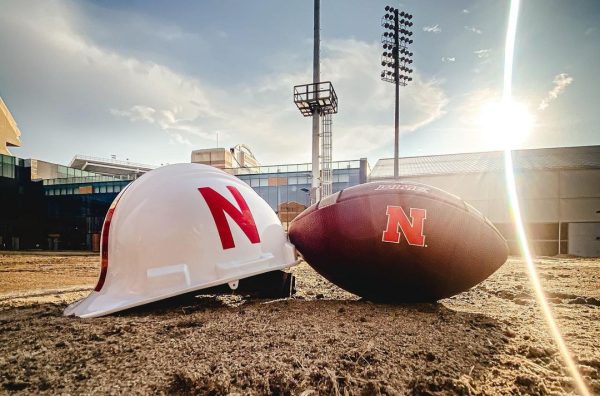The Psychology of Fandom – Why We Care so Much

As a lifetime College Football fan and “Child of the Corn” hailing from the state of Nebraska, my passion and loyalty runs deep. Although Nebraska Football’s performance over the past several years has illustrated nothing short of a massive fall from glory , my instincts and emotions still want to tell me that we are “better than”: better than everyone else. I could tell you why, but I’ll spare you. I spare you because this “my team is better than your team” phenomenon is not unique and lies within the heart of any passionate fan of any team of any sport.
The past few years have been nothing short of heartache, disappointment, and despair with bursts of delusional hope and optimism between them all. Although this article is not about Nebraska (I promise), I should mention for emotional context that we (or should I say former former coaching staff) have in recent years broken historic records for one-score losses and heartbreaking endings.
These games, I tell ya. They’ve had a big impact on my mental health. Perhaps I’m being dramatic, but it would be a lie to say that they didn’t affect my mood on profound levels at times. After traveling to Minnesota to watch us blow a lead a couple years ago, I swore off the program and ate and drank my feelings before going to bed at 6pm. A good weekend in Minneapolis went out with a whimper, and if I’m being honest, really put a damper on what had been a fun vacation away leading up to the second half on that Saturday. I didn’t want it to affect me that much, but it did.
For more context, I’m not only a licensed mental health therapist, but a fan in general about understanding psychology and human behavior. I’ve spent a lot of time (mostly after losses), wondering why I (and so many others) care so damn much. I want to make sense of it – and perhaps to justify it. On the surface (and to outsiders who don’t understand), it’s completely ridiculous. How can anyone get so worked up about the athletic performance of 18-22 year old players and an outcome that’s seemingly out of everyone’s control except for the people on the field? Why do we attach our identities so closely to a “tribe” that has no bearing on our survival? Why do we care so much about a game? It’s just a game, right? Sort of, but perhaps the answer isn’t straightforward…and maybe there’s some deeply rooted evolutionary stuff going on that can help us figure out not only why we care so much about our team but why we hate the other so much.
Tribalism
Sports fandom meets primitive evolutionary needs and instincts. Humans evolved as social creatures that depended on identity with and support from a tribe. Identifying with a team meets innate needs to connect, to belong, and to share a purpose. Being a part of a cohesive tribe – although not as crucial in modern days – was historically not just helpful, but necessary for survival. Being a part of a tribe required allegiance and a certain understanding that one’s tribe was separate from other groups of people – groups of people that did things differently, wore different clothes, had different traditions, lived somewhere else, and who might represent a threat. As fans of different “tribes” or teams, it’s natural then that we would distinguish ourselves from other fan bases by the colors we wear, the things we chant, and the things that define us.
Territorialism
Humans are naturally territorial with in-group and out-group dynamics. Territorial instincts lead to competition, protection of one’s own territory, a desire for dominance, and sometimes all-out war. It’s in our nature. The best tribe wins and who doesn’t want to be associated with the status and benefits that comes along with being a winner?
Take a look at every major sport. On the most basic level they all involve defending one’s own territory and trying to exploit or intrude upon the opponent’s. These territorial instincts explain why games exist, why we like to compete, and why even vicarious competition (as the viewer) meets some basic primal needs.
Consideration for territory off the field is also relevant. Sports teams represent a geographical location and contribute to the identity of a city, state, school, or country. When we identify with a team that represents a place that we identify with, there are implications as it relates to how outsiders might view where we reside or where we are from.
Social Identity Theory
Closely related to concepts I’ve already discussed, Social identity Theory – proposed by Henri Tajfel and and John Turner (social Psychologists), suggests that we as humans derive some of our self-concept and self-esteem from the groups we belong to. We strive to be a part of groups that we positively identify with and that we view as being favorable and distinct from other groups – whether it be based on religion, nationality, political orientation, occupation, interests in general, or a sports team.
“Basking in Reflected Glory” is a concept described by Social Identity Theory that speaks to a psychological tendency to associate ourselves with and to identify with successes of the groups that we identify with. This would explain why we might feel embarrassment when our team loses or why we might feel a strong sense of pride when our team wins. This essentially means that one of the reasons why we care so much, is that the performance of the team we identify with can truly impact our sense of self, sense of worth, and self esteem – all contributing to how we feel in very real ways.
It’s not “Just a Game”
Even if we dismiss the psychological and evolutionary reasons for why we care so much about our team and the competitive nature of sports, most of us can agree about the value there is to be gained in team athletics that we all want to root for.
When we follow a team, we’re watching people grow up. We’re watching them learn lessons about teamwork, sportsmanship, victory, loss, and the power of grit. We’re seeing people learn about what happens when people rise to the challenge and what happens when our response to a challenge prompts collapse. We see the power of leadership, what it means to be a good leader, and what happens when leadership fails. We see people learning about what happens when you work hard and don’t give up…what happens when you get in your head…and what happens when you persevere. Aside from the inherent risks in any sport, we are watching people choose controlled forms of healthy aggression and competition in the form of a positive outlet with structure and rules. We see athletes learning about discipline, goal-setting, decision-making, and time-management. As we watch this all play out on the sideline, perhaps we learn a few of those lessons as well. The lessons to be learned in sports are something that I believe the better parts of us all really want to get behind.
Humans Love Stories
Anyone that criticizes the investment someone might have in a sports season better not have ever shed a tear over the Bachelor not selecting their favorite candidate…or have gotten emotionally wrapped up in a tv series or movie. Whether we’re talking reality TV or fiction, people love to follow a good story. The phenomenon of narrative transportation is a psychological concept that speaks to our ability as humans to “transport” ourselves and to get engrossed in a narrative. Through our capacity for empathy and imagination, we find ways to relate to characters in a story and know what it’s like to feel what those characters might be feeling.
When we follow a team, a season, or a league, we are watching a real-time drama unfold before our eyes. We are following a story that we don’t quite know the ending to yet. We might think of the beginning of an NFL football season, for example, as the beginning of a story with a lot of complex moving pieces. We know there will be surprises and upsets. We root for underdogs and for David to beat Goliath. We wonder if this might be THE season where everything changes. We find heroes, we find villains, and we find ourselves in the characters we root for.
Aside from the drama of the sport on the field, we learn about players and coaches’ personal lives – successes, scandal, controversy, and loss. We weave those narratives into the game and know that all elements are deeply interconnected – and that you can’t completely separate the real lives of people from their performance on game day.
We are Literally Invested – and We Expect ROI
In many ways, we as fans of a team we identify with are actually emotionally and financially invested. We buy merchandise, we go to games, we tune in, and we act as marketers for a brand. Our support as fans have a large impact and influence on the success (or lack thereof) of a program or franchise. Our energy and noise in a stadium contribute to a home-field advantage – or so we hope. When we buy a ticket, make donations, (or contribute financially in any other less-direct way), we pay coaches salaries, help maintain facilities, and fund athletic departments. A team with no good fans would never succeed.
Because we are truly invested as integral “players”, we expect a return on that investment. Even if our level of control is limited, we know that the different ways we support our teams contribute to the final product – and we want to see results. We are happy when we do and feel let down when we don’t. In that way, it makes sense that we take it all sort of personal.
It’s a much-needed escape
I think about the year 2020 when just about everything in the world – including sports – was briefly canceled. Everything that we thought was certain and that we thought we could count on, was turned upside down. Tensions built for reasons surrounding the pandemic, politics, and civil unrest. When games were called off, it became so clear how much we rely on the escape of sports in a world where everything outside of sports is too damn serious and too damn hard. Sports is one of the great escapes where we can set aside our work, our worries, and our politics for a few hours. We temporarily suspend our own story to throw ourselves in another story. It’s engagement in something outside of self and bigger than us – that even if fully invested in the outcome – at the end of the day we know is not “life or death”.
It all Makes Sense Now
Now that we understand how deeply-rooted our fandom is in our psychology and our instincts, you can feel good about knowing that caring so much just means being human. Throw yourself in unapologetically. Feel good knowing your passion is justified and share this with someone who just doesn’t get it. It’s more than “just a game”. It’s our identity, our community, our story, and our escape.
E. Greene, LMHC
Sports Fan
















